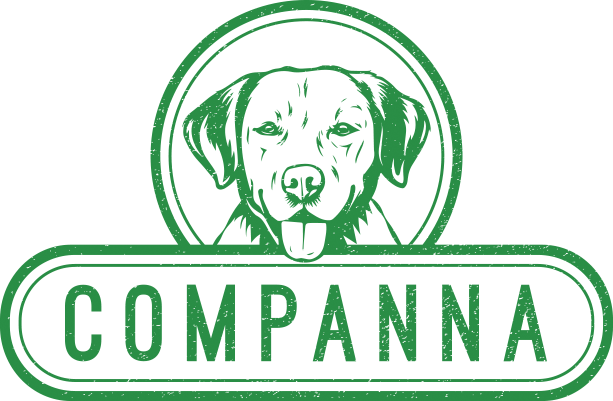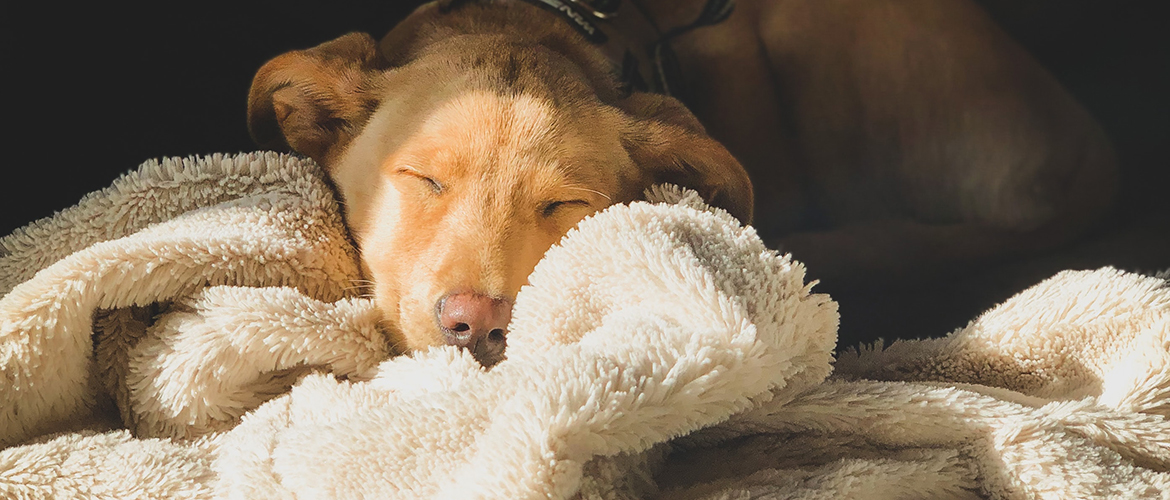Stop Dog Snoring : Causes and Remedies
While it’s tempting to snuggle with a floppy basset or cuddly shepherd, you’ll have to get up and kick your dog out of the room as soon as you hear puppy snoring. Wait… is the dog snoring? Yes, it’s real and not something most people think about until they have their beloved companion snuggled up in bed. If you have a snoring puppy, you may be wondering how to cure and help stop dog snoring.
Let’s take a look at some solutions on how to help your furry friend, stop dog snoring as well as a list of canine breeds that snore in order to address the question can dogs have sleep apnea and why do dogs snore in the first place.
Why do dogs snore?
Dog snoring is caused by nasal blockage or nostril obstruction, which causes airway compression. The reasons for snoring are quite similar between people and their canine companions: it all boils down to restricted airflow.
Why do dogs snore:
- Overweight — Because overweight dogs sleep in an upright position, their necks and throats can become full with extra tissue, which collapses around the esophagus as they sleep, causing snoring.
- Allergens — oThe main reason for a puppy snoring is the prevalence of allergens in and around the home, ranging from dust and smoke to tree and weed pollens. If you think pet dander got you down, think about how your pets react to human dander! Mucus accumulation and postnasal drip can be caused by allergies.
- Tobacco — Dogs who sleep in the same room as smokers, and/or who breathe secondhand smoke from their owners, may have snoring symptoms. Secondhand smoke might be an irritant source, causing dog snoring, if you smoke in the house (or around your dog). Your pup has a delicate throat similar to yours.
- Breed — Because of their distinctive form, some dog breeds snore the most. Not all dogs snore (or make you suffer from their snoring), but brachycephalic syndrome is common among squishy-faced canines with breathing issues. A floppy or narrow soft palate in a dog restricts the opening of the larynx and prevents air intake, resulting in hypoxia.
Can dogs have sleep apnea?
Unfortunately, the dog who is your companion may be afflicted with sleep apnea, which is a common sleeping problem in people. Sleep apnea in dogs is defined as when breathing intermittently stops and resumes while sleeping. Loud snoring and inexplicable waking up are signs of this condition.
Dogs can suffer from a variety of sleep disorders, some of which include sleep apnea, narcolepsy, REM behavior disorder, insomnia, and more! It’s not good for their blood pressure or energy levels if they’re worried about it.
Dog Breeds that Snore the Most
So, you’re a sensitive sleeper, but are you ready to welcome a new companion? It’s vital to understand which dog breeds snore the most. Sometimes, it might be impossible to stop dog snoring. It’s critical to remember that not every change in a dog is beneficial. “As we breed dogs to have shorter snouts, the soft palate in the back of their throat doesn’t change, and that can be a problem,” says Los Angeles celebrity veterinarian Dr. Jeff Werber.
Of course, if you still want one of the following breeds but don’t want to be kept up at night by their snoring, it may be a good idea to crate train your dog so they learn to sleep in a separate room.
- Pugs — You’re quite familiar with these sniffing little creatures. Pugs have the highest snoring rates among dog breeds, thanks to their snouts being designed for it!
- French Bulldogs — They may be small but their sonorous snores and nighttime grunts can wake up the whole house!
- Black Russian Terrier — Aside from snoring, their lengthy beards will tickle your toes as they rest at the foot of your bed. Cute as a button, though!
- Pekingese — It’s a tiny dog with an unexpectedly loud snore, owing to their squishy little muzzles.
- Clumber Spaniel — Regal dogs are as noisy as they are adorable, but their distinctive rumbling snores aren’t for the faint of heart.
Ways to Stop Your Dog From Snoring
It’s time to take action and try and stop dog snoring while you’re sleeping by using snore-free home remedies with snoring aids! Unfortunately, you can’t use all of the standard snoring treatments on a snoring canine, but there are ways you may help your pet sleep more comfortably:
- Air Humidifier — A dry mouth and throat may be caused by a lack of natural lubricants. When those throat flaps touch and adhere together, snoring occurs! A humidifier in your dog’s sleep area can assist to increase the humidity level.
- Puppy Pillow — To stop your puppy from snoring, give it a pillow! The majority of dogs sleep with their snouts down and their necks supported by the ground. If you teach your dog to use a pillow (it looks silly, but trust us), the change in posture may be enough to help! Some dog beds have built-in pillows, which is pretty darn convenient.
- Circular Dog Bed — This is a wonderful, low-cost method to keep your dog from snoring. A round dog bed encourages curled up sleeping, which improves air flow and reduces pressure on the esophagus. Not only that, your dog will be grateful for the new comfy bed without realizing why it was replaced! Tip: To ensure that your dog doesn’t wake you up at night, place their new circular bed in an outdoor heated doghouse.
- Surgery — If your dog’s snoring is loud and continuous, but not enough to prevent you from sleeping, surgery may be the only alternative. It’s unlikely, but your veterinarian will be able to help you with this one.
Dog Snoring — Not the End of Sleep
That’s all there is to it. Whether you’re getting your first puppy or your fifth pug, you might not know if you’ll be the recipient of a snoring snout. Dog snoring is a genuine issue, but with some proactive measures, it won’t have to ruin your dog’s (or your) sleep. When your child climbs up at the foot of your bed, there’s nothing to be concerned about: turn on the humidifier, provide him a pillow, and let him and you drift off to sleep dreaming about chasing cars and kitty cats.
For more information about CBD oil for dogs click here.





